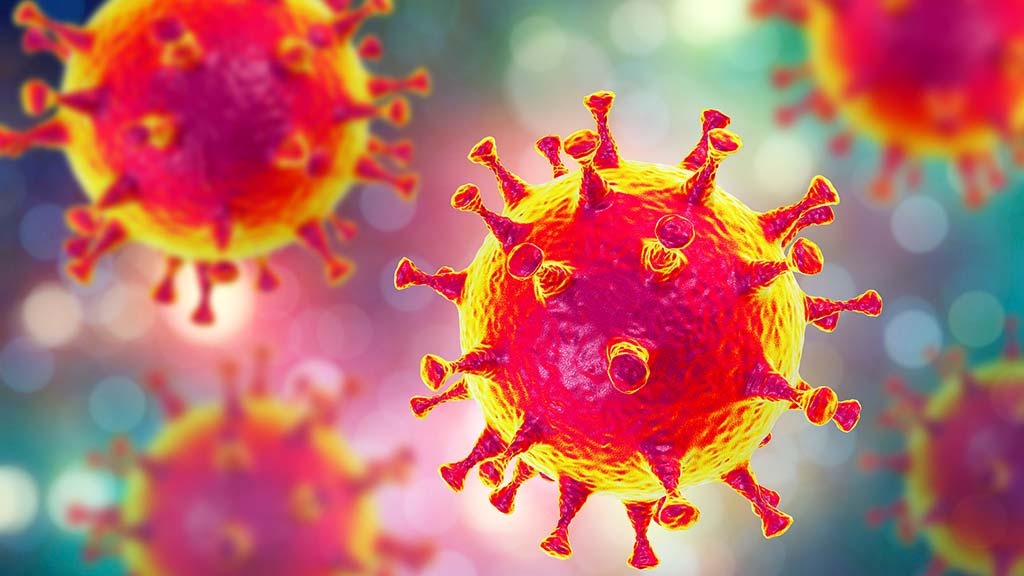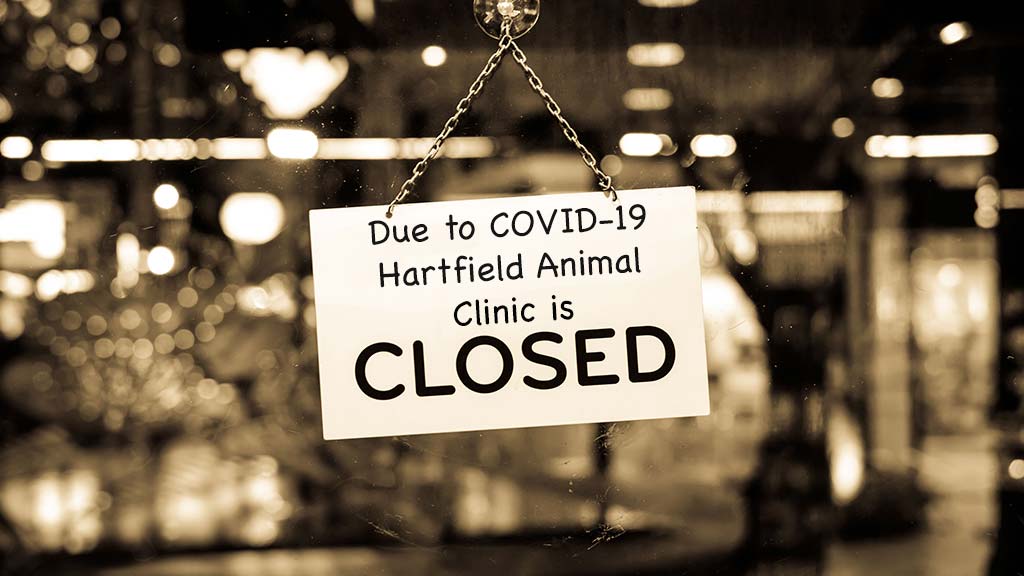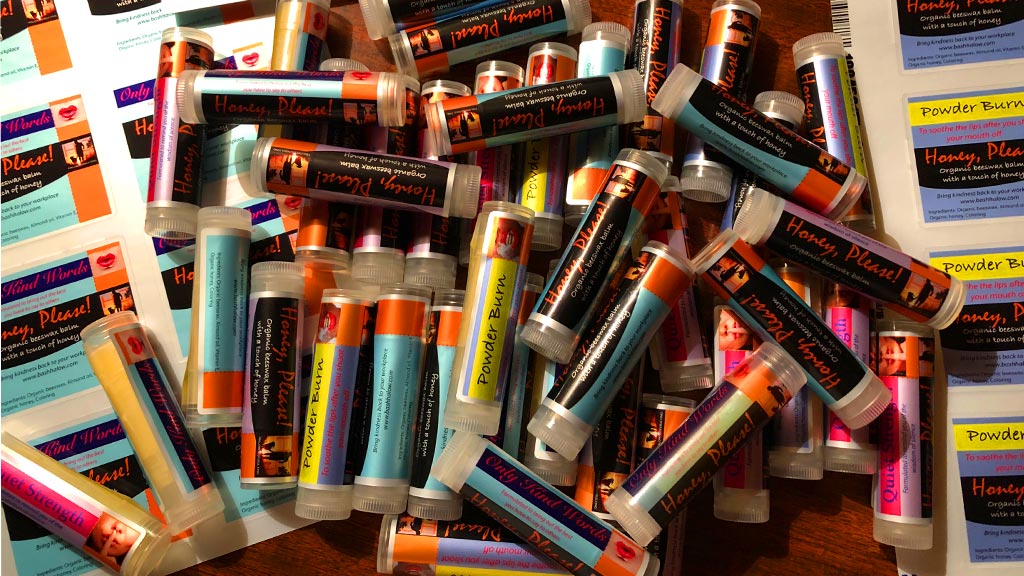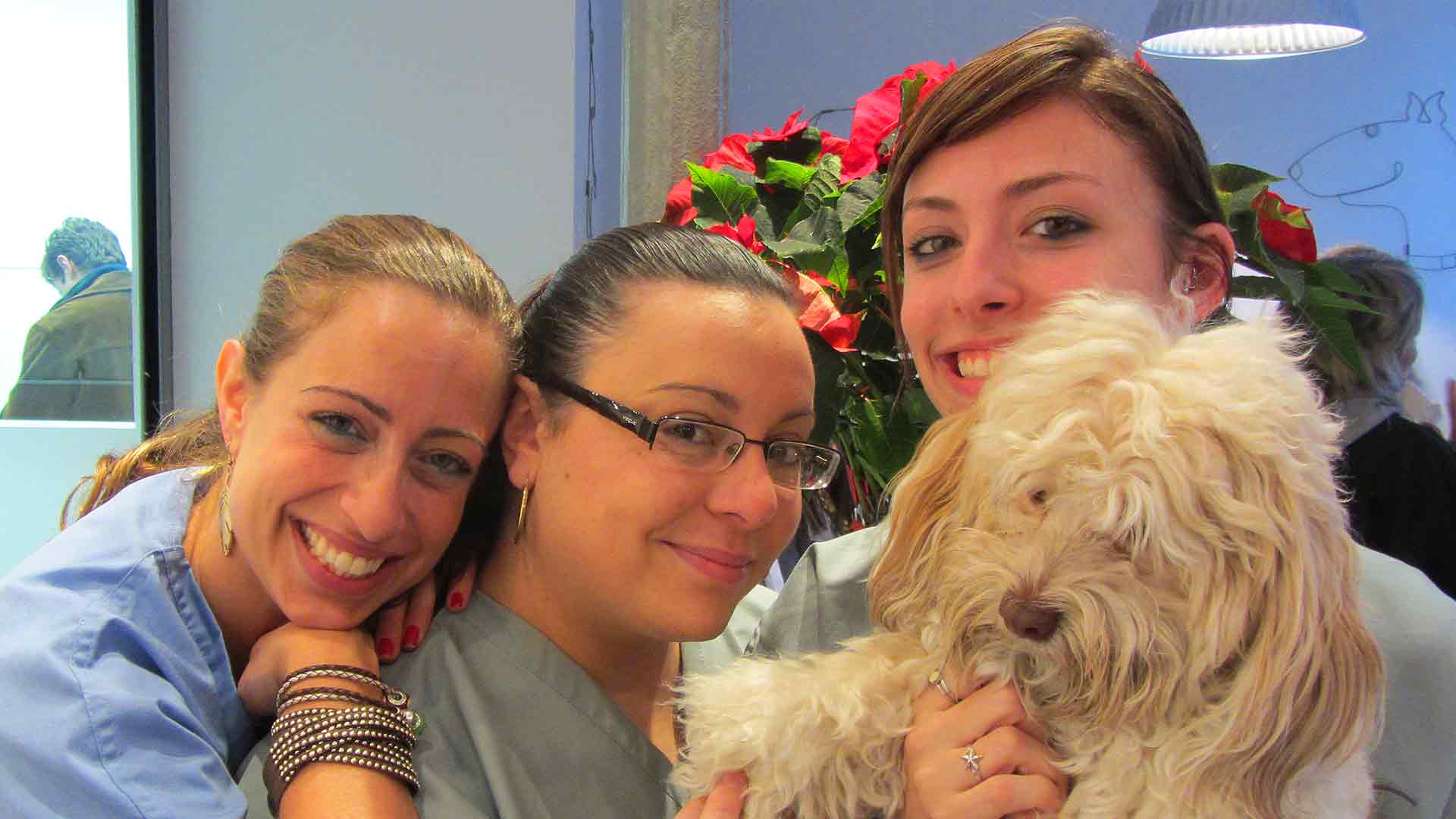Updated March 10th, 2020
Will COVID-19 Affect Your Small Business?
On February 22nd, the CDC issued a ‘dire warning’ regarding the outbreak of COVID-19 in the U.S. and urged businesses to prepare in the event that there is an outbreak of the corona virus in their area. If a local or national outbreak of the COVID-19 virus occurs, business owners are at risk for high employee call-out rates, decreased sales, and cash flow issues. The risk to your business is significant enough that all veterinary hospitals should prepare a response plan to a potential COVID-19 outbreak.
Is The Risk To My Business Real?
Yes. Even if the news reportage on COVID-19 turn out to be hyperbolic, the population’s reaction to news of an outbreak will likely impact U.S. businesses much as it has in China, Korea, and Italy. It doesn’t matter if the virus has a lower infection and morbidity rate than the flu; once people find out that an outbreak is in their area, they will probably react strongly. They may change the way that they shop, travel, care for their children, interact with others, and use their sick leave. The behavior could last for weeks.
“We are asking the American public to work with us to prepare in the expectation that this could be bad,” Dr. Nancy Messonnier, director for the Centers for Disease Control and Prevention’s National Center for Immunization and Respiratory Disease.
The CDC Explains How Business’s Should Prepare For COVID-19
The CDC has wisely issued a list of guidelines for small business owners in the face of a local or national outbreak of COVID-19. Upon review, I believe the recommendations are well advised. In other countries, businesses have shuddered within a day of an outbreak, so if you wait until an outbreak is announced to do your planning, it will be too late. Here are the CDC’s recommendations for employers.
Review Your Sick Leave Policy
Decide if you want to build more flexibility into your sick leave policy should an outbreak of COVID-19 happen in your area. Ask yourself how you will respond if an employee needs to stay home with a child that has tested positive for COVID-19. If an employee calls out sick during an outbreak, will you still require them to bring in a note from the doctor? Will doctors even be available to write such a note? How will you react if an employee has already used all of their sick days, but requires more time because of an outbreak or exposure to the virus? If you change your sick leave policy, make sure that you review the changes with your staff and provide them with a written copy of the new policy.
OSHA and COVID-19
According to the Center for Disease Control:
“OSHA standards, including those for personal protective equipment (PPE, 29 CFR 1910.132) and respiratory protection (29 CFR 1910.134), require employers to assess the hazards to which their workers may be exposed.
“In assessing potential hazards, employers should consider whether or not their workers may encounter someone infected with COVID-19 in the course of their duties. Employers should also determine if workers could be exposed to environments or materials contaminated with the virus.
“Depending on the work setting, employers may also rely on identification of sick individuals who have signs, symptoms, and/or a history of travel to COVID-19-affected areas that indicate potential infection with the virus, in order to help identify exposure risks for workers and implement appropriate control measures.”
Decide How You Will Manage Caseload
What will you do if one of your veterinarians is diagnosed with COVID-19 or if a significant portion of your employees calls out sick? Just plowing though a heavy caseload, despite employee shortages, isn’t always meritorious. Overtaxed employees risk injuring themselves, injuring animals, and making medical errors. Make a plan for how to adjust your schedule in the event of a significant or impactful staff shortage.
Is Telemedicine The Answer?
The NY State Veterinary Medical Society is offering a webinar entitled, “The Coming Coronavirus – How Telehealth can help you keep calm and carry on.” led by Dr. Hillary Jones, cofounder of Teletails, a digital pet care platform. Non-members are allowed to audit the class. Most U.S. states allow veterinarians to diagnose and prescribe virtually, provided they have an existing valid client patient relationship. Offering telemedicine services during an outbreak may be a great way for you to assuage concerns if some clients don’t want to travel with a sick pet during a CORVID-19 outbreak. The Fetch DVM360 2020 Baltimore Conference will have extensive classes on telemedicine and how to implement it into your practice.
Decide If Employees Should Quarantine Themselves
If there is an outbreak of COVID-19 in your area, what will you do if someone shows up to work with the sniffles? What will you do if an employee’s child can’t go to daycare or to school because of COVID-19-related closures? Will that employee be eligible for sick leave pay? What will you do if employees learn that a member of another employee’s family has tested positive for COVID-19? Will you allow that seemingly healthy, but potentially infectious, staff member to come to work? What will you do if your employees don’t want to work with others that they believe are infectious? The CDC recommends, “Employees who have symptoms of acute respiratory illness are recommended to stay home and not come to work until they are free of fever (100.4° F [37.8° C] or greater using an oral thermometer), signs of a fever, and any other symptoms for at least 24 hours, without the use of fever-reducing or other symptom-altering medicines (e.g. cough suppressants)”. Use the OSHA links at the end of this article for more information regarding your obligations as an employer.
Review Your Financial Situation
An outbreak could cause significant employee call outs and appointment cancellations. The situation could last 2 weeks or longer and impact sales. How will you manage the financial burden? Speak with your accountant on the matter and create a plan for how to guard yourself against a steep decline in revenue.
Continue To Monitor Inventory Availability
A severe pandemic could create critical shortages of medical supplies, especially personal protective equipment. As of February 27th, 2020, The FDA has reported the following information with respect to potential medical supply chain shortages:
- The FDA has reached out to 180 drug manufacturer’s and reminded them of their legal responsibility to report any anticipated shortages of human drugs and/or critical ingredients to their manufacture. As of Feb 27th, 2020, there are only a handful of human drug shortages caused by manufacture slow down in China due to CORVID-19.
- So far, there are still readily accessible supplies of personal protective equipment such as gowns, face masks, gloves, eyewear, and so forth, though there have been reports of localized shortages. According to the FDA:
“…Regarding medical equipment designed to protect the wearer from injury or the spread of infection or illness, the FDA has heard reports of increased market demand and supply challenges for some of these products. However, the FDA is currently not aware of specific widespread shortages of medical devices, but we are aware of reports from CDC and other U.S. partners of increased ordering of a range of human medical products through distributors as some healthcare facilities in the U.S. are preparing for potential needs if the outbreak becomes severe…It is important to note that no law exists requiring medical device manufacturers to notify the FDA when they become aware of a circumstance, including discontinuation of a product, that could lead to a potential shortage, and manufacturers are not required to respond when the FDA requests information about potential supply chain disruption.” Commissioner of Food and Drugs – Food and Drug Administration Stephen M. Hahn M.D.
- The FDA is not aware of any cellular or gene therapies that are in short supply as of February 28th, 2020.
- There are 32 animal drug firms that produce drugs made with ingredients sourced in China. No shortages have been reported at this time.
- As of March 2nd, MWI AmerisourceBergen has, “not received any further notifications from our supply chain partners regarding drug shortages.” MWI is doing an excellent job at updating veterinary practices of any supply disruptions. Visit the link for more information.
- Reports on VIN are less sanguine. In an article entitled Hong Kong dog tests ‘weak positive’; limits placed on medical mask purchases, by Edie Lau and published on Feb 28th:
“Regardless whether their community has seen any cases of COVID-19, clinicians are affected by surging demand for and resulting supply limits on disposable masks, gloves and gowns, a category of medical supplies known as personal protective equipment. “Today our distributor told us we are on an allotment of X items a month for PPE products (gowns, masks, caps, etc). They also pointed out that allotted does not mean we will necessarily [receive] that amount,” Dr. William Thomas, a neurologist, neurosurgeon and professor of small animal clinical sciences at the University of Tennessee, posted Wednesday on VIN.”
Teach Employees Respiratory Etiquette and Hand Hygiene
Use the following links to teach employees coughing and sneezing etiquette and how to wash their hands.
Regularly Disinfect Work Surfaces, Phones, and Keyboards
According to the World Health Organization (WHO), Employers should, “Make sure your workplaces are clean and hygienic. Desks and tables, phones and keyboards all need to be wiped with disinfectant regularly. Why? Because contamination on surfaces touched by employees and customers is one of the main ways that COVID-19 spreads.”
Many veterinary practices use the Virox product line, specifically Rescue Disinfectants. The product is hydrogen peroxide based, and its non-toxic and non-irritating formula makes it a safe choice for users and patients. It also doesn’t require a long contact time, and comes in liquid form and in wipes so that you can use it on floors, fill spray bottles, or clean surfaces like keyboards and phones. Click here to learn more about the efficacy of Rescue™ against COVID-19
Now is the perfect time to update or build your infection prevention protocol.
Decide How You Will Handle The Public
During an outbreak, you’re likely to get a number of calls from concerned pet owners, so you should be prepared. According to the World Small Animal Veterinary Association, there is no evidence to suggest that we can infect our pets with COVID-19 or that we can be infected by them, but researchers caution that the virus is still too new to know for sure.
Use the following resources when drafting a list of recommendations for pet owners in the face of COVID-19.
- American Veterinary Medical Association
- World Small Animal Veterinary Association
- World Organization for Animal Health
- Center For Disease Control
Additional Small Business Management Resources Related to COVID-19
- Risk assessment of employees that may be infected or that are at risk of exposure
- CDC interim guidance for businesses COVID-19
- CDC printer friendly handout for employees on what to do if sick
- OSHA employer guidelines and COVID-19
- Maps showing areas of outbreak across the globe
- FDA update on supply shortages
- MWI list of supply shortages
Additional Reading
New To Halow Consulting?
Let’s Get Started








